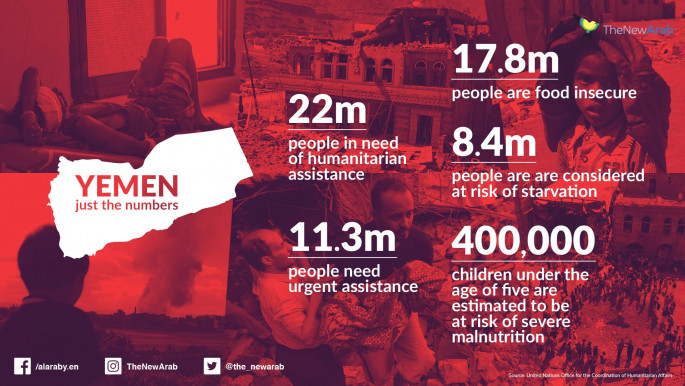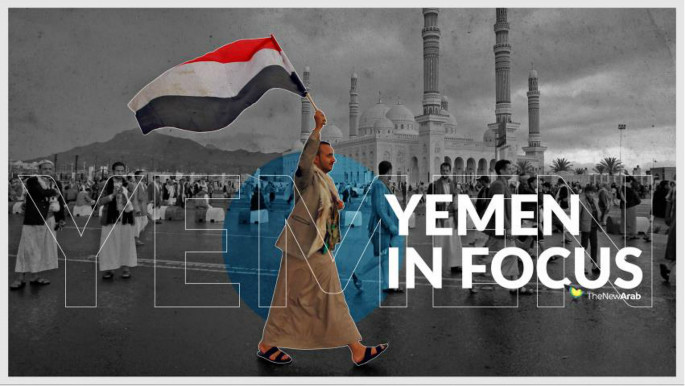Yemen in Focus: Iraqi militants, not Houthis struck Saudi pipeline
Scores of civilians were killed in multiple revenge strikes on Yemen in recent weeks after drone attacks on May 14, which hit two oil pumping stations and briefly shutting down the kingdom's East-West pipeline were claimed by the Houthis.
However, a Wall Street Journal report published earlier this week said US officials believe it was unlikely that Yemen's rebels launched the attacks.
The pipeline lies closer to the Iraqi border than Yemen's, and does not have the same defensive missile systems in place, as there is in the kingdom's southern frontier.
This has led US officials to say they believe the operation was launched by militants in Iraq and not in Yemen, sparking fears that a "second front" has opened for Saudi Arabia.
Secretary of State Mike Pompeo has spoken to Iraqi officials, urging them to take action and prevent the country from becoming a launching pad for future attacks into Saudi Arabia.
US officials told the Wall Street Journal that the technology used in the pipeline attack were much more advanced than those known to be in the Houthis' arsenal.
"This poses questions about the Iraqi government's capacity to keep Iraq neutral in a regional crisis,” said Michael Knights, a senior fellow at the Washington Institute for Near East Policy, told the WSJ.
"[Iraq] President Barham Salih recently said that Iraq won't be used by America to attack Iran, but Iraq is already being used by Iran to attack its neighbours."
 |
US officials told the Wall Street Journal that the technology used in the pipeline attack were much more advanced than those known to be in the Houthis' arsenal |  |
Despite it becoming clearer that the Houthis did not carry out the attacks, the Yemeni rebels still claimed responsibility leading Knights to view this as a sign the militants are closer to Tehran than believed.
"This indicates that they are not a temporary partner of Iran's security sectors but rather a true proxy that takes actions against their own interests to benefit Iran, and provides support to other Iranian-backed militias," he said.
The news seems to back a recent UAE move that saw the Gulf state reportedly downgrade its military presence in Yemen, believing the threat from Iran in the east is greater than that of the southern Arabian Peninsula – as highlighted in last week's Yemen in Focus report.
Violating children
Of course, whether or not the Houthis launched the attacks on the Saudi oil pipelines provides no solace for the families of those killed in revenge air raids but mores for Yemenis killed at the hands of the rebels too – an overlooked aspect of the war that was highlighted in a UN report this week.
The document verified almost 12,000 grave violations by the coalition as well as the rebels against children between April 2013, when Yemen's political crisis was spiralling into an all-out civil war, and the end of 2018.
Read more here: Atrocities against Yemeni children hit 12,000
The world body's new 16-page document "paints a devastating picture of the violations affecting boys and girls over the past five years," UN spokesman Stephane Dujarric told reporters in New York this week.
"With over 7,500 cases, the most prevalent violation documented by the UN was the killing and maiming of children. The report also documents high levels of recruitment and use of child soldiers."
 |
With over 7,500 cases, the most prevalent violation documented by the UN was the killing and maiming of children. The report also documents high levels of recruitment and use of child soldiers |  |
The UN report blames all sides, and rightly so. Despite a lack of media coverage on the issue, Houthi rebels have relentlessly recruited children as young as 10 throughout the conflict, arming them with weapons before sending them out to the fiercest frontlines across the country – putting them at obvious grave risk.
Researchers confirmed 3,034 cases of children being recruited into armed forces, mostly the Houthi rebel group, which overran the Yemeni capital Sanaa in 2014, prompting a Saudi-led coalition to intervene to reinstate the government.
The UN also confirmed that 2,776 children were killed and 4,732 were maimed by the fighting, attributing half of those figures to airstrikes and aerial attacks, mostly from the coalition, which supports the government of President Abed Rabbo Mansour Hadi.
The document comes at a key time – just weeks ahead of a highly-anticipated annual "list of shame" by UN Secretary General Antonio Guterres that lists armed groups and states that commit atrocities against youngsters.
For those unaware, Saudi Arabia's coalition in Yemen is all too familiar with the list, having been named and shamed on several occasions since the war began.
While all sides in the war stand accused of failing to protect civilians, the Saudi-led coalition has drawn particularly harsh condemnation from international rights groups over civilian deaths.
It was added to a UN blacklist in 2017 for the killing and maiming of children.
 |
The Saudi-led coalition has drawn particularly harsh condemnation from international rights groups over civilian deaths |  |
The Saudi-led coalition has regularly targeted schools, hospitals, wedding parties and even funerals, prompting international uproar, though little has been done to hold it to account.
Tit-for-tat strikes
The UN need not dig any further than a week to find violations against children.
On Friday, the Saudi-led coalition hit a house in the southwestern province of Taiz, killing at least seven people from one family, Yemeni officials said on Saturday.
Officials said two airstrikes hit Yemen's Khadir district on Friday, confirming a woman and four children were the victims of the attack.
The strikes on Taiz were seen to be part of the coalition's repeated revenge air raids to respond to a continued step up in rebel attacks on the kingdom.
This week, the Houthi rebels launched drones on Jizan and Abha airports, according to the group's Al-Masirah TV, the latest in a series of strikes on the site.
On Tuesday, a Yemeni rebel attack on Abha airport left nine civilians wounded, the coalition said.
On June 12, a rebel missile attack on Abha airport wounded 26 civilians, drawing promises of "stern action" from the coalition.
And on June 23, another rebel attack on Abha airport killed a Syrian national and wounded 21 other civilians, according to the coalition.
The coalition intervened in support of the Yemeni government in 2015 when President Abedrabbo Mansour Hadi fled into Saudi exile as the rebels closed in on his last remaining territory in and around the second city Aden.
Since then, the conflict has killed tens of thousands of people, many of them civilians, relief agencies say.
The fighting has triggered what the United Nations describes as the world's worst humanitarian crisis, with millions of people displaced and in need of aid.
Sana Uqba is a journalist at The New Arab.
Follow her on Twitter: @Sanasiino
Yemen In Focus is a new, regular feature from The New Arab.
Click below to see the full archive.





 Follow the Middle East's top stories in English at The New Arab on Google News
Follow the Middle East's top stories in English at The New Arab on Google News


